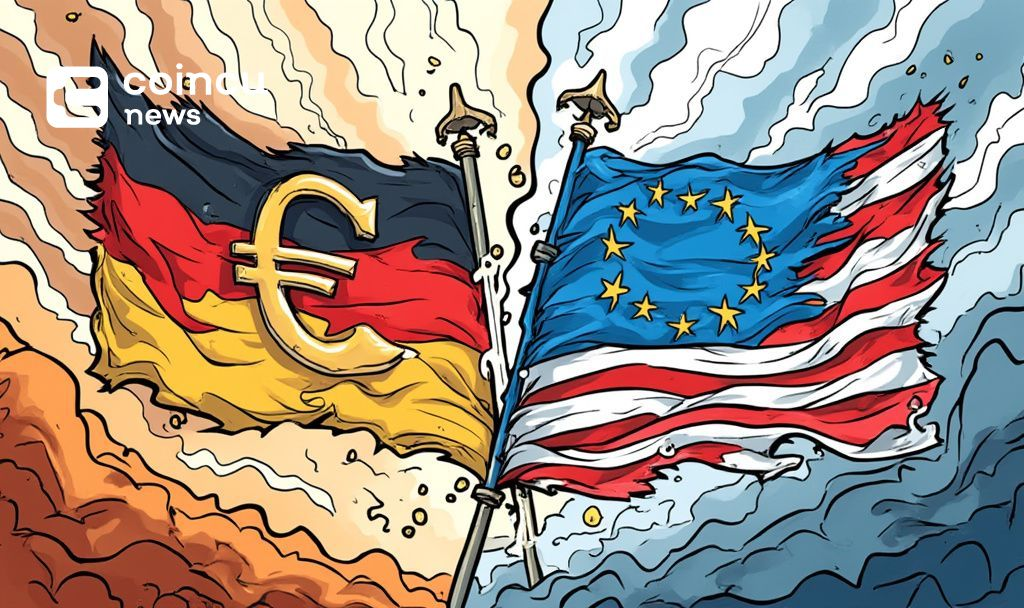- Germany and EU plan €22 billion tariffs.
- Potential 15% decrease in German exports to the US.
- EU considers measures reversible with fair trade solutions.

Germany and the European Union are preparing significant retaliatory tariffs in response to the United States’ trade policies.
In Germany, April 11th saw Finance Minister Jörg Kukies articulate intentions to retaliate with EU tariffs if trade negotiations with the United States deteriorate further.
This announcement is pivotal amid rising economic tensions, as the European Union gears up to respond to tariffs affecting €26 billion of exports. Key stakes include potential recession risks for Germany, Europe’s major car exporter. Internal tensions are escalating as German and EU officials prepare countermeasures against US tariffs, driven by strategic interests and long-standing trade imbalances. Kukies emphasized the risk of a 15% decrease in German exports to the US. The EU’s proposed retaliatory tariffs cover €22 billion worth of US-related goods, targeting sectors crucial to American exports. Industry impact has sparked significant attention. The EU’s tactical focus on goods from Republican-supporting states aims to exert pressure politically. Kukies remarked, these measures ensure readiness to act decisively should talks falter. The European Commission supports these steps, viewing them as necessary but revocable with fair trade resolutions. “They [EU tariffs] can be suspended at any time should the U.S. agree to a fair and balanced negotiated outcome,” said Olof Gill, Trade Spokesperson of the European Commission. Did you know? The European Union’s proposed tariffs closely mirror similar actions taken during the Trump administration in 2018 and 2020, reflecting a consistent strategy in European trade policies. Continuing analysis suggests Germany’s economic stability is at stake if tariffs proceed without resolution. Broader European markets face potential ripple effects, possibly influencing crypto sectors indirectly. Historically observed trends imply resilience in certain industries, though economist warnings persist over prolonged economic turmoil. Speculative scenarios anticipate various influences on investment trends and industrial regulations. The cryptocurrency sector may experience indirect volatility driven by investor sentiment shifts resulting from Europe’s economic condition. The complex nature of this trade dispute provides a clear example of how geopolitical factors intersect with economic considerations.Germany and EU Prepare €22 Billion Retaliatory Tariffs
Historical Context and Potential Market Implications
Source: https://coincu.com/331538-german-finance-minister-eu-tariffs/